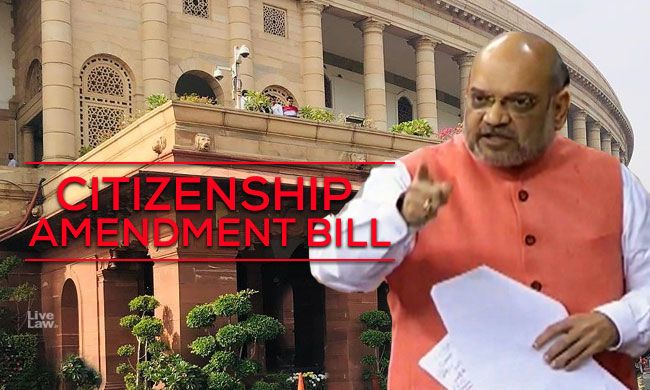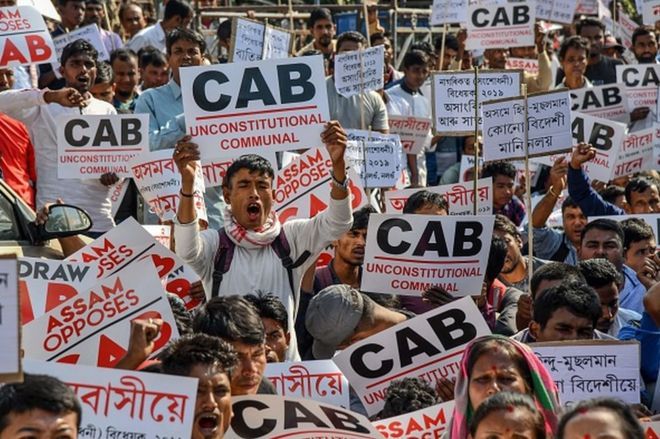Check out the things that you need to know about Citizenship Amendment Bill:
The Citizenship (Amendment) Bill or CAB was passed by the Rajya Sabha on Wednesday, grants grants Indian citizenship to the non-Muslims of Afghanistan, Pakistan and Bangladesh. The Citizenship (Amendment) Bill will now go to the President for his assent. As many as 125 lawmakers voted in the favour of the Citizenship (Amendment) Bill and 99 against it.
The issue was taken up in Rajya Sabha after six hours of debate on the legislation. . Rajya Sabha Chairman and Vice President Venkaiah Naidu had allotted the six-hour time to the MPs to discuss the Indian citizenship bill.

What the bill proposes?
The Citizenship Amendment Bill, 2019 passed by Lok Sabha on Monday and Rajya Sabha on Wednesday, proposes to provide citizenship to illegal Hindu, Sikh, Buddhist, Jains, Parsis and Christian migrants from Pakistan, Bangladesh and Afghanistan. It, naturally, implies that migrants, who identify themselves with any group or community other than those mentioned above, from these countries won’t be eligible for citizenship.
Who is covered in the bill?
The Bill covers six communities namely Hindu, Sikh, Buddhists, Jains, Parsis and Christian migrants from Pakistan, Bangladesh and Afghanistan
Who does it leaves out?
The Citizenship (Amendment) Bill exempts certain areas in the North-East from this provision. The CAB would not apply to tribal areas of Assam, Meghalaya, Mizoram and Tripura as included in Sixth Schedule of the Constitution and the area covered under the Inner Limit notified under the Bengal Eastern Frontier Regulation, 1873.
Logic behind this?
After the partition between India and Pakistan on religious lines in 1947, the NDA government has argued that millions of citizens of undivided India belonging to various faiths were staying in Pakistan and Bangladesh from 1947. The Bill states: “The constitutions of Pakistan, Afghanistan and Bangladesh provide for a specific state religion. As a result, many persons belonging to Hindu, Sikh, Buddhist, Jain, Parsi and Christian communities have faced persecution on grounds of religion in those countries. Some of them also have fears about such persecution in their day-to-day life where right to practice, profess and propagate their religion has been obstructed and restricted. Many such persons have fled to India to seek shelter and continued to stay in India even if their travel documents have expired or they have incomplete or no documents,”
Who are the opposers?

The main opposition against the bill is violative of Article 14 of the Constitution — the Right to Equality. Congress, Trinamool Congress, CPI(M) and a few other political parties have been opposing the bill as well. There have been protests across North East in Assam, Meghalaya, Manipur, Tripura, Mizoram, Nagaland and Sikkim.
Will the states be affected?
Yes, the Bill will impact all 7 North Eastern states. However after several rounds of discussion, the Centre has agreed to provide safeguards for NE States.
How much addition there will be to the population of India?
No figures have been recorded other than by the the Intelligence Bureau before the JPC saying there are 31,313 persons belonging to these minority community living in India on Long Term Visa. Parties such as Shiv Sena have been asking for an exact number. As per the IB records the numbers are – Hindus 25,447, Sikhs 5,8
BJP leader Amit Shah said the bill looks forward to correct the wrong done by the partition of the country on religious lines. He went on to attack the Congress for alleged doublespeak on the issue, saying the party had during its rule given Indian citizenship to 13,000 Hindus and Sikhs from Pakistan without raising a word about the same for other communities.
He also said the bill does not violate Article 14 of the Constitution as it does not prohibit laws based on reasonable classification.














